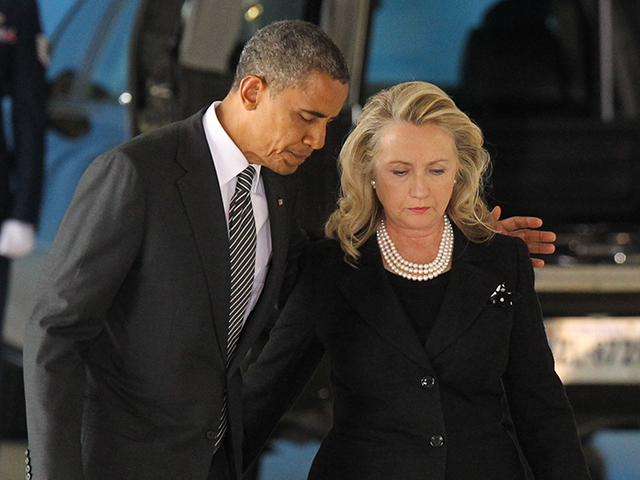The mystery of the misleading Benghazi talking points today became a little less murky. A Freedom of Information Act request from Judicial Watch has revealed who in the Obama White House gave former U.N. Ambassador Susan Rice the misleading Benghazi talking points: Deputy national security advisor Ben Rhodes has his finger prints all over the most incriminating document of the lot.
Rice served up the Obama administration’s talking points (which were soon revealed as so much spin) with great eloquence to the American people on a whopping five Sunday talk shows September 16, 2012—five days after the brutal murder of U.S. Ambassador Christopher Stevens and three other Americans in Benghazi, Libya.
A 140 page tranche of documents (some heavily redacted) from the State Department and the National Security Council (NSC) reveals an administration struggling to come to grips with the attack and with the protests throughout the Middle East. They also reveal an administration determined to avoid blame for its policy failures.
On page 14, we find this email from Ben Rhodes, sent on September 14 at 8:09 p.m., to a number of Obama administration officials, including White House spokesman Jay Carney, NSC deputy spokesman David Plouffe, and others.
The tag line reads: RE: PREP CALL with Susan Saturday at 4.00 pm ET.
From the e-mail:
“Goals:
To convey that the United States is doing everything that we can to protect our people and facilities abroad.
To underscore that these protests are rooted in an Internet video, and not in a broader policy failure.
To show that we will be resolute in bringing people who harm Americans to justice and standing steadfast through these protests.
To reinforce the Presidents and Administration’s strength and steadfastness in dealing with difficult challenges.”
By the next morning, Saturday the 15th, deputy CIA Director Mike Morell had cut and edited the fairly comprehensive talking points produced by the CIA to reflect the directions of Rhodes. Morell removed any reference to terrorism, and overruled the eyewitness evidence of the CIA’s own station chief in Libya, who stated that there was no protest whatsoever in Benghazi.
For the Obama national security council, the problem was that the Benghazi attack ran directly counter to its Libya policy. The administration, from the president on down, clung to the fiction that terrorism was something of the past, and Al-Qaeda was “on the run.” (The president’s speech writers finally removed that unfortunate phrase from his campaign speeches after the Benghazi attack.)
This conundrum continues to haunt Hillary Clinton, who was asked again last week at the Simmons Leadership Conference in Boston: “If you could change the outcome of any event that occurred while you were Secretary of State what would that be?”
“Oh, it would certainly be the attack on our facility in Benghazi,” Clinton responded, “and the loss of two State Department personnel and two CIA contractors from the terrorist attack and the terrible consequences of that. It’s very, very painful and it was certainly the biggest regret that I had as Secretary of State.”
“Regret,” not “remorse” is the operative word here. The Obama administration has tangled itself in a cover-up of the awful policy choices that led to Benghazi. As a consequence, Americans have lost their trust in the administration, the families of the victims continue to suffer, and none of the guilty have been punished.


























